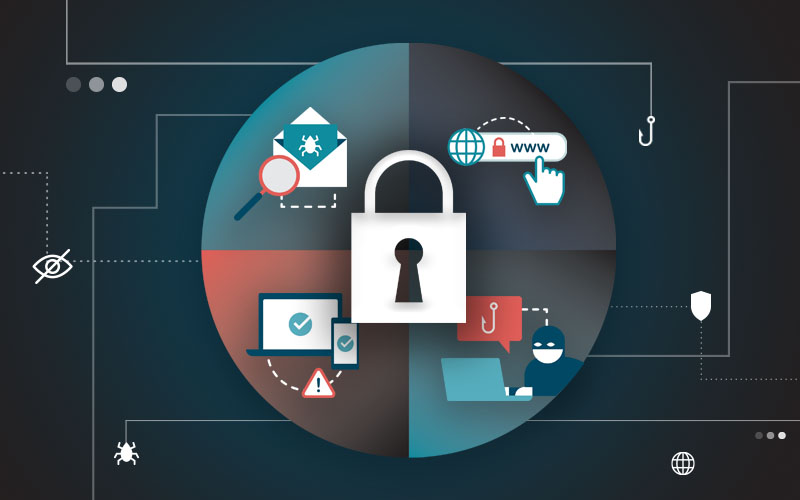January 19, 2021

Cyber scams are becoming all too common. To protect yourself and your information, awareness is your number one defense. To stay alert about current scams, visit the Federal Trade Commission’s website at FTC.gov. Always be on alert and stay vigilant. Following are a few more things to look out for and tips to keep your information safe.
1. When in doubt, delete!
Follow your gut. If you receive something and wonder, “why am I getting this?” there’s probably a good reason to be suspicious. Don’t click on links or open attachments from emails or senders that you’re not expecting. The damage that could be done from opening a malicious link or attachment is much greater than the value you might get from the email or attachment.
2. Hover over links and email addresses
By hovering your mouse over hyperlinks and email addresses, you can often tell if they are linking to something unexpected. For example, when hovering over an email address that appears to be from your Farm Credit East representative, does it end in @FarmCreditEast.com? If not, then it’s likely from an imposter and should be deleted immediately.
3. Use email from a reputable provider
Large companies like Google, Microsoft, Comcast, etc., have detection software already in place and will filter suspicious email to a junk folder, if not delete it entirely. On that note, a best practice is to scan items that go into your spam folder and delete anything that you were not expecting or seems out of place.
4. Create strong passwords and update regularly
See this recent blog article for tips to create strong passwords. In addition to creating strong passwords, you should also update your passwords regularly and not use the same password for all your accounts. It’s especially important to separate business passwords from those you use for personal, leisure accounts. For example, your Netflix password shouldn’t be the same as your bank password.
5. Verify via an alternative form of communication
If someone is asking for personal information, don’t give it right away — especially if it’s suspect. Instead, if you receive an email from your bank requesting personally identifiable information, call your bank to verify they have requested this information. As another example, if someone shows up at your farm office claiming they need to do repair work, but you weren’t expecting them, don’t let them in. First call your office manager to verify they have requested this work or call the vendor’s company verifying it is legitimate.
6. Rely on trusted sources
Just because you get an email doesn’t mean you should do what the email says. Instead, visit the website of the sender’s organization or call the sender directly to verify the content of the message. For example, during the coronavirus pandemic, hackers preyed on people’s fears during a crisis, requesting personal information via email. Throughout the pandemic, every state has a website providing updated information on relief programs and other response efforts, so visit this trusted source for the most accurate information instead of relying on an email — and certainly don’t submit personal information by way of email.
7. Review your credit reports often
Keeping an eye on your credit reports will allow you to identify any suspicious accounts that may have been created. It’s recommended to review your credit reports at least once per year. The three major credit reporting agencies are required to provide free credit reports once annually. Visit annualcreditreport.com to learn more.
8. Keep your software up to date
Set your computer, cell phone and other devices to automatically install software updates. These updates may protect your devices from security threats.
More information
For other information on common scams and how to protect your information, read this previous blog article: Stay vigilant! Protect yourself from heightened scams. Also, for tips on how to create secure passwords, view this blog article: 6 Tips for Strong Passwords.




